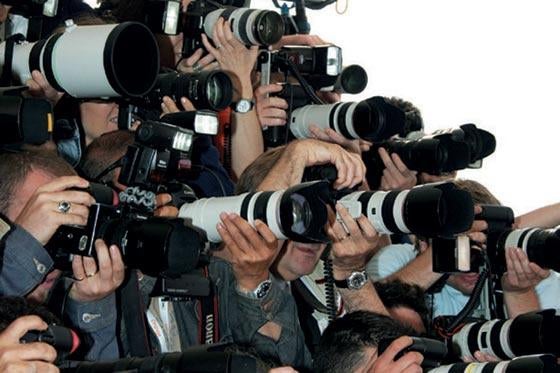
Roman Polanski is suing French publications for invasion of privacy in an attempt “to put an urgent stop to the media spotlight” he and his family have endured since a 32-year-old sex case against him was revived, a French court was told.
Polanski’s lawyers say the photographs, taken at the Swiss Alpine chalet where he his under house arrest, invaded his privacy as well as that of his family, but the newspapers and magazines which published pictures say they are a newsworthy depiction of Polanski’s life under house arrest.
Polanski and his wife are suing two French newspapers and two magazines for a total of about 150,000 euros (about £134,000).
Polanski’s lawyer, Marion Gregoire, told a court hearing in Paris that several of the photos at issue depict Polanski’s children, Elvis and Morgane – who, as minors, are especially protected by French media law, the Associated Press news agency reported.
“The legal case against Polanski in no way justifies the paparazzi’s stalking of his wife and children,” Gregoire said.
Invasion of privacy suits by celebrities are common in France, where Polanski has lived for 30 years.
He was arrested in Switzerland in September while en route to a Swiss film festival on a warrant issued by authorities in the United States.
He spent more than 60 days in detention in a Swiss jail before being transferred to house arrest in his Swiss vacation home on December 4.
Authorities in Switzerland have not yet ruled on whether to extradite Polanski to Los Angeles. He fled the US in 1978 – on the eve of sentencing – after having admitted having unlawful sex with a minor in 1977.
Gregoire told yesterday’s hearings that Polanski had a deeply rooted fear of the media, which she traced back to the murder of his pregnant second wife, Sharon Tate. The actress and four others were murdered by followers of cult figure Charles Manson in 1969.
Polanski has said he was horrified by rumours in the press before the killers were tracked down which had suggested that the murder victims had bizarre lifestyles and somehow brought the violence upon themselves.
Since then “Polanski has feared the media like the plague” and always sought to maintain his privacy, Gregoire said.
She argued that Le Journal du Dimanche weekly newspaper should pay damages of 10,000 euros (about £8,900) for having used a photo of Polanski at the window of his chalet.
But the newspaper’s lawyer, Christophe Bigot, held up a photo of a mass of photographers outside Polanski’s chalet soon after his house arrest started, asking: “Can you seriously claim in this context that if you stand at the window you won’t get your picture taken?”
The picture was a legitimate depiction of a major international news story, and the case was unwarranted, he said, asking the judge to order Polanski to pay the newspaper’s legal fees.
“The press can and should cover this type of case,” Bigot said.
Polanski’s lawyer sought a further 10,000 euros in damages from Voici magazine for a photo of Polanski’s wife, actress-singer Emmanuelle Seigner, walking down a street in Switzerland – a photo that the celebrity-oriented publication called “harmless.”
Polanski and his wife are also targeting magazine VSD for a spread which included photos of their children at an airport, demanding a total of 55,000 euros (about £49,100).
VSD’s lawyer noted that the photos were taken in public and that the publication blurred the children’s faces so they could not be recognised – a common practice in France.
The court’s decisions were expected on 19 January.
A judge last week heard a suit Polanski has brought against Le Parisien newspaper. The ruling in that case is expected on Friday.
In the 1977 sex case, Polanski was initially accused of raping a 13-year-old girl after plying her with champagne and a Quaalude pill during a 1977 modelling shoot. He was indicted on six felony counts, including rape by use of drugs, child molestation and sodomy, but pleaded guilty to the lesser charge of unlawful sexual intercourse.
He fled to his native France in 1978, on the eve of sentencing, after spending 42 days in a California prison for a psychiatric evaluation.
Email pged@pressgazette.co.uk to point out mistakes, provide story tips or send in a letter for publication on our "Letters Page" blog

